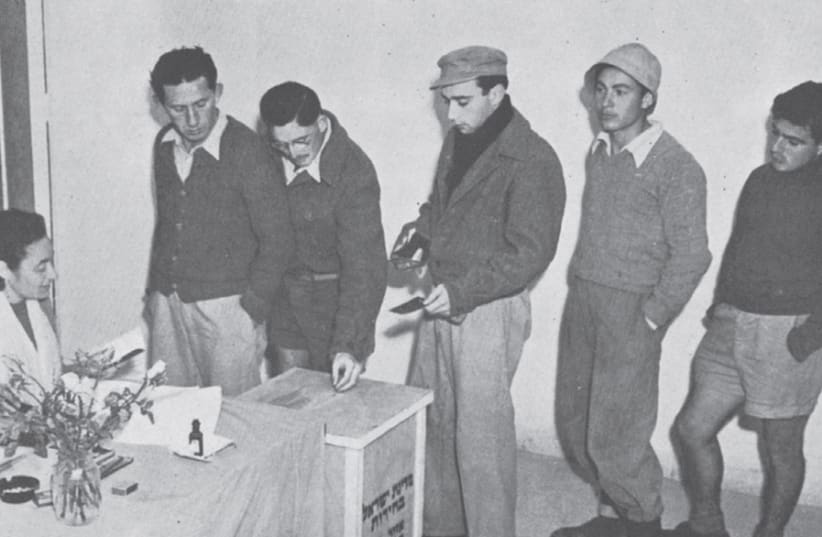■ EVERYONE IN the media who reports on politics is looking for a different angle – but the further one looks back, the more obvious it becomes that the more things change, the more they stay the same. One of the current disputes in the ultra-Orthodox parties is the ongoing refusal to permit women to be candidates for election to the Knesset. David Sela, writing in Yisrael Hayom (Israel Today), looks back to the first Knesset elections and quotes newspaper reports of disturbances on Election Day. There was a delay in opening the polling station in Mea She’arim because the male scrutineers refused to sit at the same table as the representatives of the Religious Working Women. Eventually another table some distance from the males was set up for the women. Then there was another problem. The Ethiopian Church is within the Mea She’arim voting district and four priests and two nuns showed up to cast their ballots. They were initially denied the right to do so, not so much because of the color of their skin, but because of their faith. There were objections to non-Jews being allowed to vote in the Jewish state. But all six had ID cards proving their Israeli citizenship and in the final analysis were permitted to cast their ballots.
■ APROPOS OF Mea She’arim, Yeshayahu Blau, one of its most prominent and ardent anti-Zionist activists, died two weeks ago at the age of 85. Blau was the son of legendary Neturei Karta founder Amram Blau, who considered Zionism to be a travesty of Jewish morals and values. Amram Blau’s many descendants have followed in his footsteps. What earned him more international headlines than his strong anti-Zionist stance was his marriage to Jerusalem’s most famous convert, Ruth Ben David (Blau), who had made international headlines of her own due to her involvement in the abduction of Yossele Shumacher, for whom the Shin Bet (Israel Security Agency) searched for three years before they found him living with an ultra-Orthodox family in New York.
Shumacher was born in the Soviet Union to secular parents, but his maternal grandparents Nachman and Miriam Shtarkes were Breslav Hassidim. The family migrated to Israel in 1958. The Schumachers settled on a kibbutz and after being burdened with financial difficulties, asked the maternal grandparents to take care of Yossele. The grandparents gave Yossele a religious upbringing and when his parents wanted to reclaim him, the grandparents, afraid that he would return to a secular life style, organized for him to be spirited out of the country, dressed as a girl.
Ruth Ben David was chosen for the task of escorting him from Israel to America. During her marriage to Amram Blau, she was no less anti-Zionist than he, but her son Uriel Ben David is modern Orthodox and embraces Zionism. Yossele Shumacher, as his grandparents feared, abandoned religious observance, but he is not anti-religious and some years ago had a reunion with the Gertner family with whom he had lived in New York.
■ SOME 400 people, including students and graduates from America, Canada, England, Australia and South Africa, last week attended the opening in Emek Refaim of the new campus of Midreshet Moriah, a religious studies seminary for girl founded in 1985 by Rabbi Meyer Berglas.
Also in attendance were Mayor Moshe Lion, Deputy Mayor Hagit Moshe, MK Shuli Mualem Rafaeli and Yeshiva University president Rabbi Ari Berman, who is a former Midreshet Moriah teacher.
Addressing the gathering, Lion said that Midreshet Moriah embodies three Jerusalem core values: a connection to Judaism and Zionism, involvement in community life and a feeling of home. He added that this was the first seminary of its kind that he had visited since assuming office.
Rafaeli spoke of the importance of Midreshet Moriah as a bridge between Israel and Diaspora Jewry and Diaspora Affairs Minister Naftali Bennett sent a recorded message of congratulations.
